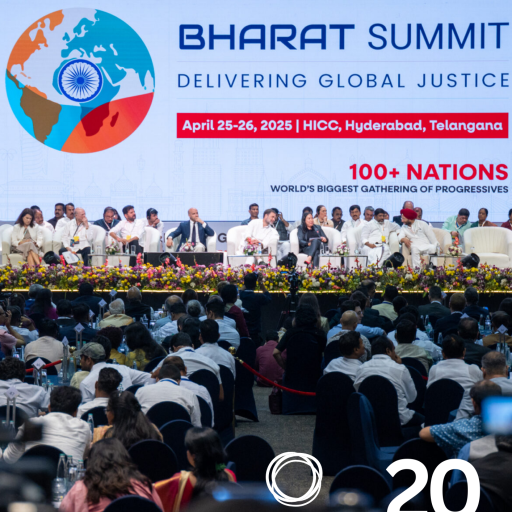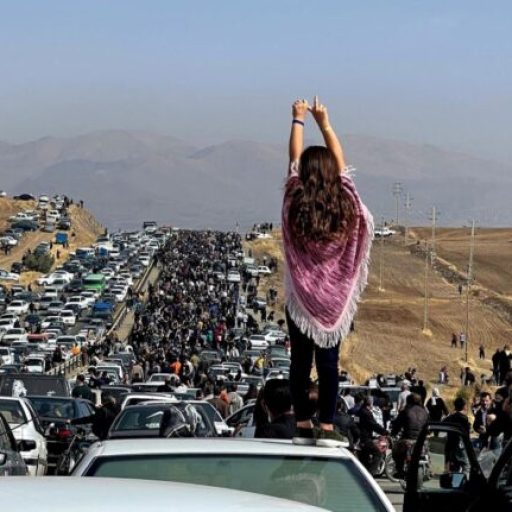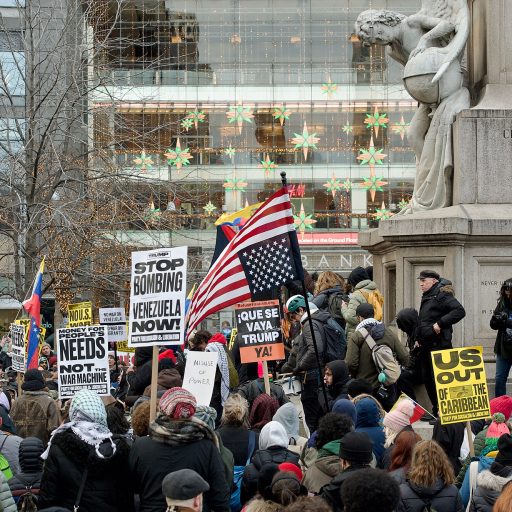1) Broken promises of neoliberalism – the challenges we face
Since the 80s until the financial and economic crisis market oriented beliefs were dominant. In some cases the market liberalization has led to high growth rates and has allowed lifting hundreds of millions out of poverty, with China and India probably the most obvious cases. The Asian-miracle was used by some as an argument for the advantage of an authoritarian developmental state in an early stage of development, whereby China is the most prominent example for a trade-off between political and social freedom and economic development. Yet these countries also display the extent to which the promises of postponed democracy as well as neoliberalism have failed to materialise. And also in other countries across the globe social interests have been sacrificed or watered down for economic growth. Today it is obvious that the neoliberal model is clearly not sustainable.
Inequality: not a necessary evil but a fundamental threat to development
There is first of all the issue of rising inequality in many regions, undermining social cohesion and the very basis of democratic governance. This has reached levels unheard of before and has led to an extreme imbalance between the political power of Multinational companies (MNC) –especially of the financial sector – and other groups of the society. At the same time it has effectively created a small, globalized elite, which feels little if any responsibility to share its wealth with the rest of humanity. Be it in the dramatic cases of the revealed offshore billions owned by the families of officials from the People’s Republic of China or American and European corporations, or the abstract, technical figures of rising Gini-coefficients from Europe to Asia – it is clear that the economic crisis has hit the most vulnerable the hardest.
Not only is this detrimental to the general welfare and social cohesion of the affected societies. It also leads to a dramatic polarization of national and international politics. Often the widening wealth gap and increasing continuously inequalities give rise to ethnic and religious conflict as it allows populists to exploit the growing feeling of injustice for their own aims. Inequality also fuels nationalism as regimes with a declining legitimacy turn to blaming alleged outside enemies for the results of their own mistakes. Thus inequality also puts inter-state peace and cooperation at risk as can be seen in many places
Furthermore, the growing disparity between small groups of wealth-holders and the swelling masses at the bottom of society make the meritocratic promise of capitalism sound increasingly hollow, stifle creativity and innovation and question the prospects of development in general.
Democracy under pressure
But the still prevailing growth strategies, with minimal state intervention, low taxes and weak trade unions have not only brought inequality to historic records. With their failure to promote education, social progress and inclusive growth, they have also contributed to the increasing pressure on democratic governments in some parts of the world. Thus another promise of neoliberalism – that markets, basic political freedoms and participatory governance always go together – has been clearly refuted. In many countries neoliberal authoritarianism today successfully combines curtailing human rights at home with courting foreign investors. Such tendencies are rife from Thailand to Myanmar and to Ethiopia, where advocates for democracy and human rights face increasingly difficult uphill struggles. This crisis of democracy affects everyone in the societies concerned. But, again, it disproportionately hurts the poor for whom the ballot, strikes and free postings on social media are the only ways to express their concerns and defend their interests. This, linked with inequality makes the current pressure on democratic principles in many countries all the more worrying.
Economic growth but no air to breathe
The neoliberal approaches of the past have, furthermore, failed to effectively address the problems of environmental degradation and climate change. In many parts of the world this by now is far more than an issue championed by fringe environmentalist groups. Shrinking forests, dying rivers and lakes, lack of access to drinking water and even to clean air have become common place from Delhi to Jakarta and from Lagos to Sao Paolo. But while the rich usually find ways to live with the consequences – moving to the suburbs, driving air conditioned cars, importing clean food and water from other regions – the poor face the full impact of environmental problems. Likewise, they have to carry the heaviest burden with regard to the effects of climate change, while benefitting the least from the growth model that is at its origin.
Macroeconomic risks building up
Finally the neoliberal model is increasingly failing with regard to its core characteristic – the promise to deliver the highest possible rates of economic growth over a long period of time. The numerous crises of the past twenty years have already done much to question this claim – with the most spectacular one starting in 2008 and still not over. During this crisis, private losses were socialized on a gigantic scale while those responsible for the losses were allowed to walk free, on the assumption that this was the only possible way to prevent greater harm. In recent months and weeks, however, new macroeconomic imbalances are threatening global prosperity. The real estate and credit bubble in China, the risks of a new debt crisis in South East Asia linked to the likely raise of US interest rates, as well as the plight of austerity-struck economies in Europe are all symptoms that a growth model in which markets and competition trump solidarity and collective action has reached its limits. What is therefore necessary now is a new, inclusive approach to growth that allows for peaceful, progressive, sustainable and socially just development of the planet.
2) The way forward: inclusive growth and democratic progress
After over twenty years of unfettered belief in the superiority of markets, it therefore comes down to centre-left party to provide alternatives and solutions.
Social democratization: a social policy of human rights, not charity or patronage
One crucial element of a policy to make economic growth sustainable and inclusive is a fair and rights-based social welfare state with adequate social protection floors and active labour market intervention. In far too many cases existing systems of social insurance are only rudimentary or serve as camouflage for clientelism and patronage. Rather than emancipating the poor, on the contrary, this often keeps them dependent on transfers while excluding large sections of the population that should have access to social support.
- A progressive system of social assistance instead has to be based on the human and citizen rights as well as on the principle criterion of the potential recipient’s economic needs. Thus social protection must be treated as a universal right rather than an act of charity by whatever government happens to be in power.
- A comprehensive social system constructed in such a way must cover the great risks of life, namely health, unemployment, disability, and old age and guarantee a life in dignity to everyone.
- It must also enable families to plan their future autonomously and give women full and equal access to the labour market. This can only be delivered by transparent and accountable public institutions that focus on the needs of the population and not on profit. While providers of public welfare must treat their clients with a service-oriented approach, their funding can only be assured by a sound system of universal and progressive taxation.
This will not only help to overcome domestic ethnic and religious strife, but also increase productivity, safety and public health, while reducing risks of rent seeking and corruption. By giving everyone a stake in society, it will above all empower the underprivileged to fully participate in public affairs and make society in general more democratic.
Political democratization: reclaiming liberty for the left
In the past the international progressive movement has all too often left it to neoliberals and right-wing actors to label themselves as defenders of freedom. This freedom, however, is in reality mostly the freedom of capital to move across borders regardless of any social impacts. The freedom of the wealthy to go untaxed. The freedom of employers to restrict their workers’ rights to organize themselves. And the freedom of the rich and well-connected to have their interests shape government policy. It is thus that on the “Index of Economic Freedom” Singapore and Malaysia are the leading countries in Asia, while none has ever seen a democratic transition of power, nor complete freedom of speech or governments truly accountable to the public. It is therefore time for the centre-left parties to reclaim liberty as a value and take steps towards making political democracy more participatory as well as more resilient.
- This includes an unwavering commitment to transparency, accountability, and to fighting corruption in all its forms.
- It means embracing free and fair elections and honouring the results.
- Freedom of the media, of the internet, and freedom of speech must likewise be among the highest values for any party locating itself on the political left.
- And finally this necessitates the commitment to increasing democratic participation by making education in the principles and practices of democracy universal, and by creating new venues for the people to take part in government decisions in a free, fair and transparent manner.
A well-run, transparent and democratic government not only facilitates sustainable economic growth, it also is the sole guarantor that everyone can justly benefit from it.
Economic democracy: strong, smart states that serve the people
While social and political democratization are fundamental to inclusive growth, the concept remains incomplete without an economic dimension. In order to achieve inclusive growth, the progressive parties have, above all, to turn the tables in the debate on the state. Against the neoliberal claim that the state is always the problem and the market the exclusive solution, the parties of the Progressive Alliance have to put the fact that good public services benefit citizens and businesses alike and can become a pillar of emancipation of every citizen – rich or poor.
This does not mean a return to ideologies of the past. Command or full control of the state can be harmful to economic growth and promote corruption. But with a transparent and accountable system of governance, strong and smart states could play a pivotal role for economic and social progress and will be therefore turned into powerful vehicles for promoting the public good. The main objective of the financial sector should be to enhance the development of the economy. In this spirit the main objective of the economy should be to support social progress and therefore work for the people. Not the other way around!
The parties of the Progressive Alliance therefore should overcome their fragmentation and commit themselves to working for the reestablishment of the political dominance of the state over the (financial-) MNC´s. This includes but is not restricted to measures that aim at:
- realizing an effective control of financial markets,
- strengthening social actors especially trade unions to be able to co-determine outcomes that serve public interest,
- building and sustaining infrastructure that serve everyone including railways, roads, and utilities
- supporting the construction of housing to make sure that everyone has access to affordable, good quality and healthy housing
- promoting accessible and high quality education for all
- taking steps towards making their economies greener and more energy-efficient, reduce carbon emissions, and deal with the consequences of climate change in a sustainable way.
- Finally democratizing the economy also means embracing fair trade in a way that serves the people and not merely corporate interests. Opening borders to peaceful economic exchange is to be welcomed but not at the expense of giving away popular sovereignty to dubious mechanisms of investor protection that ridicule the very principle of democratic rule of law. Instead the parties of the Progressive Alliance should work towards using free trade agreements as tools to ensure that working standards and living wages allow a life in dignity for all stakeholders of global value chains.´
3) United we stand, divided we fall – points we all should agree on
The essence of inclusive growth: greater equality and poverty reduction are not a by-product of economic prosperity but can and must go together. Democratic and transparent policies make this possible. They enable the state to serve the entire population and empower the poor. This does not have to come through restrictions on innovation and creativity. Instead the call for inclusive growth is based on the fact that good public services help to increase social justice while also improving the environment for businesses.





![Headline: Hier bitte das Thema [ Headline] 24.10.25, Lucerne, Switzerland, Progressive Alliance PA women conference](https://progressive-alliance.info/wp-content/uploads/elementor/thumbs/MAW251024mw859033AdobeRGB-scaled-recq0qxu9kb6pncdi2i7wo6ttne03ppnu58zxxdc74.jpg)
![Headline: Hier bitte das Thema [ Headline] 25.10.25, Lucerne, Switzerland, Progressive Alliance PA women conference](https://progressive-alliance.info/wp-content/uploads/elementor/thumbs/MAW251025mw860402AdobeRGB-scaled-recs8kegm3kqlleif2kq512xsjz2qfl3t7kc0t0tts.jpg)